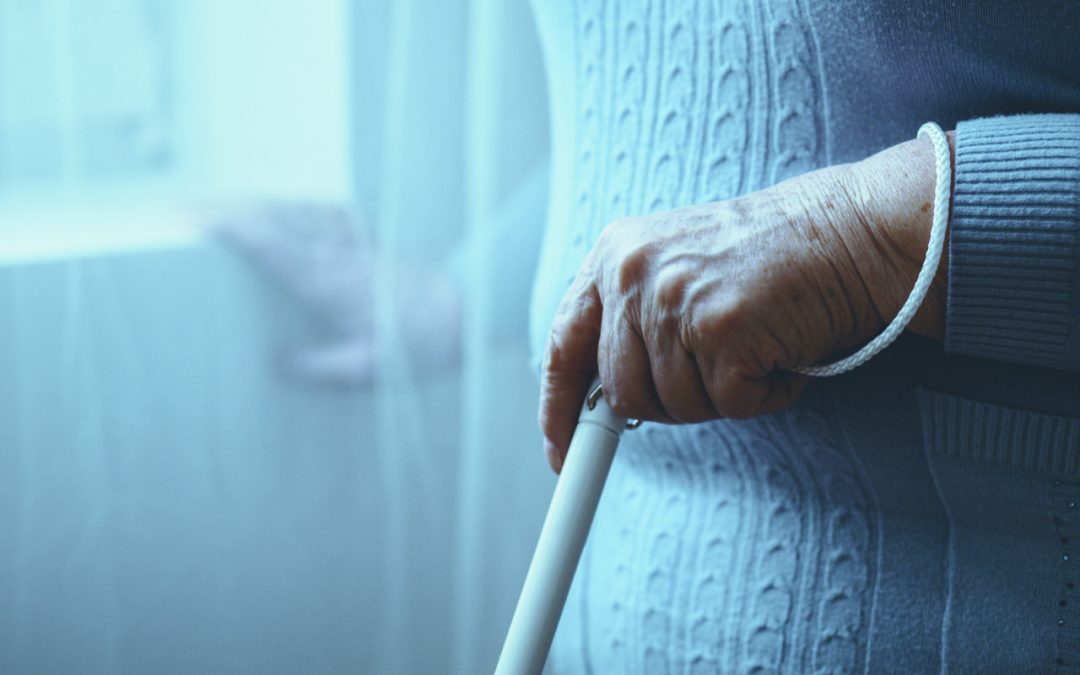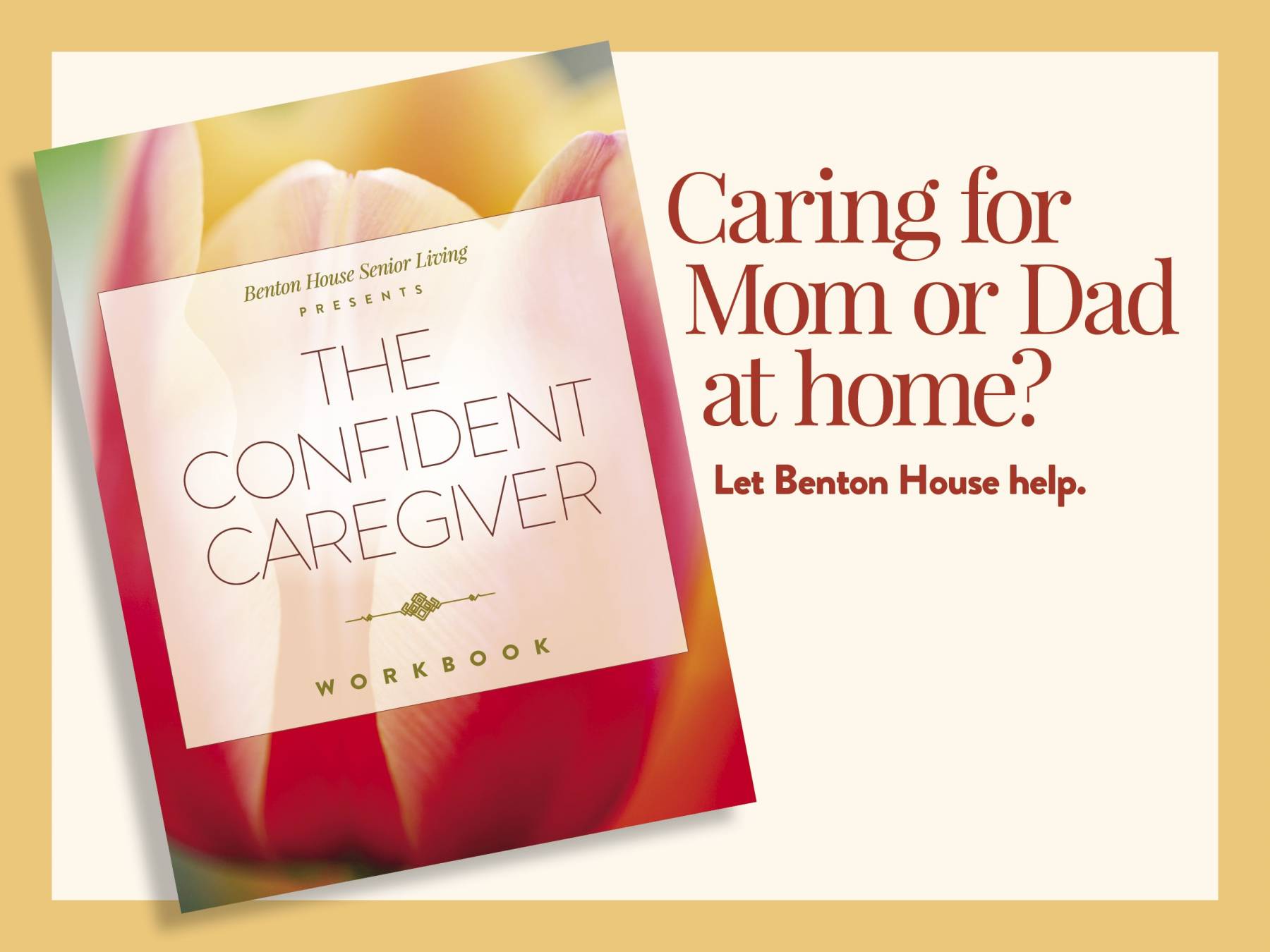How do you know when it’s time to consider assisted living for your aging parent?
Whether you live a state away or just across town, it’s never easy to witness your parents age. It can be challenging to know when it’s time to intervene or have a conversation, but there will likely come a time when it becomes more clear that mom or dad probably shouldn’t live alone anymore.
What should you be looking out for, though? Here are seven tell-tale signs it may be time to consider assisted living for your aging parent.
1 – Unkempt home
Keeping a clean home takes both desire and mobility. If mom or dad begins to lose either one, it’s important to pay attention. Maybe you start to notice dirty dishes piling up, groceries left on the counter, spoiled food in the fridge, or even spills that haven’t been cleaned up.
Whether this happens because your senior parent has lost the physical capacity to wipe up a juice spill off the kitchen floor, or they’ve simply stopped caring about how their home looks, if you notice a change in the cleanliness of their space, it’s time to have a conversation.
2 – Poor hygiene
Perhaps you start to notice mom hasn’t been keeping her hair cutting appointments anymore. Maybe dad hasn’t been shaving. Sometimes this is due to no longer taking pride in their appearance, and sometimes it’s more of a symptom of forgetfulness, or even losing the fine motor skills to apply makeup anymore, for example.
Of course, it’s not realistic to expect your aging parent to always look like they’ve stepped out of a catalog. But if you begin to notice personal hygiene and self care declining, it could be a sign that it’s time to consider having a conversation about how you can support them.
3 – Inadequate Nutrition
A concern we often hear at Benton House is whether elderly parents still living at home are getting the necessary nutrition. Maybe you notice they’re not keeping the right types of food in the kitchen anymore.
There could be several reasons for this, ranging from choosing more packaged food because they’ve lost interest in cooking to losing the cognitive awareness around what foods they need to stay healthy.
Good nutrition is crucial to maintain health during the aging process, and a top reason it may be time to consider talking to your parent about assisted living.
4 – Emergencies or accidents
Often the reason someone picks up the phone to call us here at Benton House is that mom or dad has had an emergency that has left the whole family shaken up. Sometimes a fall or other accident is a symptom of something that needs medical attention, but it can also be helpful to consider whether anything else could have contributed.
Is the house unkempt, which caused mom to trip over shoes in the middle of the floor? Perhaps having someone tidy up could help. Do you notice medications in disarray?
It may be time to find a way to ensure mom or dad is taking the medicine they need to feel their best. Whatever the reason, a fall or other medical situation can often mean it’s time to consider whether it could be time for assisted living, where you could trust your aging parent would feel more safe.
5 – Hiding the Truth
Are you getting the sense, or have you found out directly, that perhaps mom isn’t telling the truth? Sometimes pride can keep our aging parents from fully sharing their reality with us, for fear of judgment — or even that something may get taken away from them.
Whether they’ve fallen victim to elder fraud, their license is expired and they’re nervous they won’t pass the test, or they’re feeling depressed on a regular basis, there are many reasons mom or dad may hide the truth.
While it may be uncomfortable, attempting to have candid conversations with your elderly parents about how they’re really doing can go a long way in understanding whether there is a way you can support them.
6 – Depressed Mood
Keeping an eye on mom or dad’s overall mood is important. It doesn’t always mean it’s time for assisted living — there are many reasons it can be hard to keep spirits up as we age. Friends are no longer with us, we often can’t partake in hobbies we once loved, and even aches and pains can become a constant source of low mood.
While we can’t solve every problem, sometimes there are simple solutions that can bring your aging parent relief and a lighter spirit.
Helping mom or dad adjust to a new hobby that fits with their growing limitations as they age, for example, can go a long way. Sometimes, though, a sustained depressed mood can signal that it’s time to consider support from a professional.
7 – Not Exercising
Getting exercise is important at any age, and even more so as we get older. Exercise can support heart health, reduce cancer risk, improve daily task abilities, boost mood, and even enhance cognition for seniors.
If mom’s quit dressing herself well, for example, it could be because she’s become unsteady — and she could be unsteady because she is losing motor function, which exercise can keep at bay. One of the major positives of assisted living is having a community as well as facilities that make exercising both easy and enjoyable for seniors.
Is it time to consider assisted living for your aging parent?
If you’re noticing any of these signs in your aging parent, you may be considering assisted living. It makes sense, because most assisted living communities are designed to support seniors around each one of these points, from nutrition to personal hygiene.
But how do you talk with mom or dad about this potentially sensitive topic?
Approaching the subject successfully depends on the individual’s fear. Sometimes a senior doesn’t realize that assisted living is a lifestyle choice, not a nursing home.
For example, at Benton House we don’t ask residents to start yearly leases. Instead, living here is month to month, so it doesn’t feel permanent if they don’t want it to. It’s also easy to come for a short-term respite stay, which can be anywhere from a week up to 60 days, to see how this lifestyle works for them.
If you could use support navigating talking about assisted living with your aging parents, we’re always here to help.
Call us at 855-461-2552 or send us a message, anytime.



